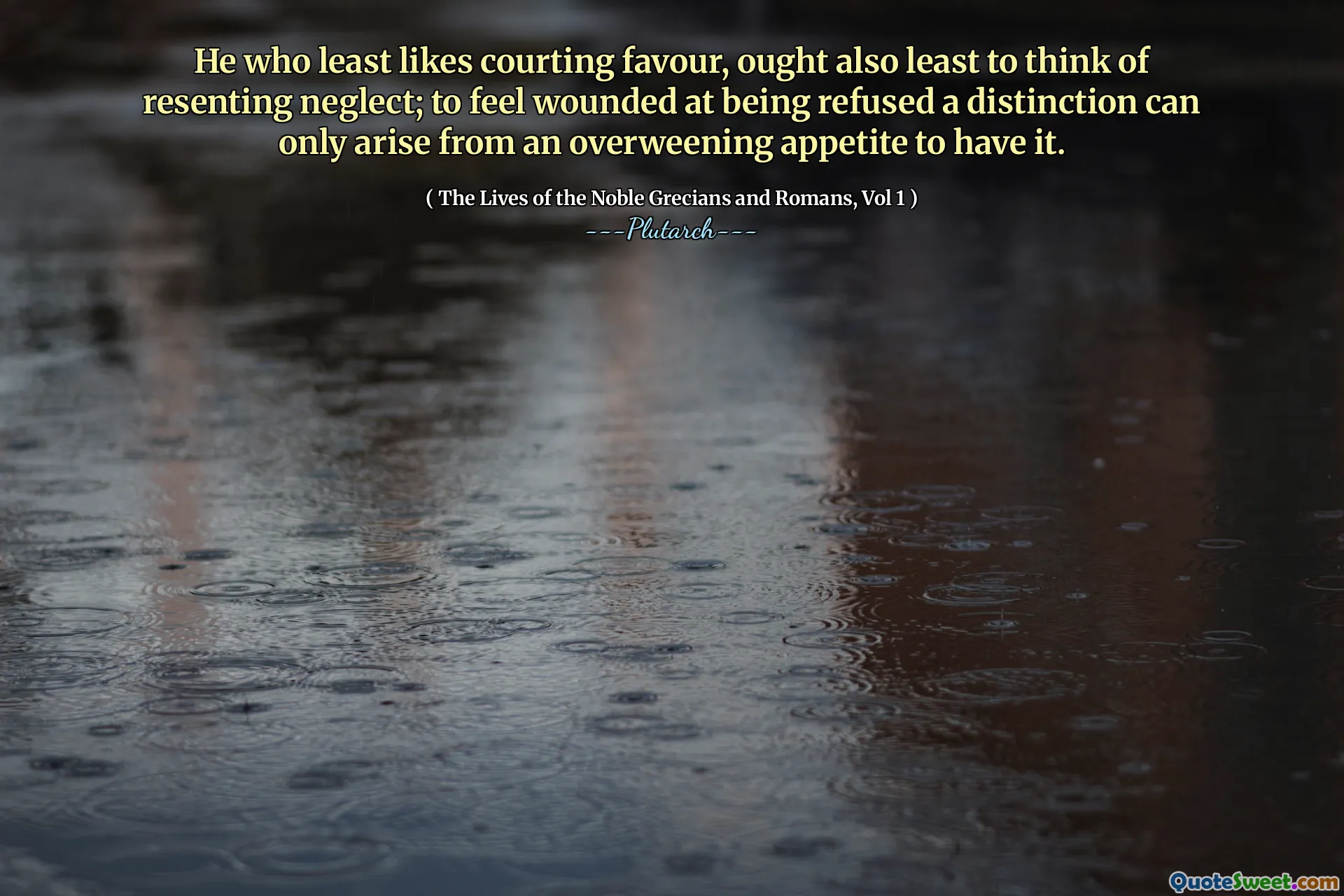
He who least likes courting favour, ought also least to think of resenting neglect; to feel wounded at being refused a distinction can only arise from an overweening appetite to have it.
📖 Plutarch
[Markdown format]
This quote emphasizes the importance of humility and self-awareness in matters of social recognition and personal worth. It suggests that individuals who are least eager to seek the approval or favor of others should also be the least inclined to take offense when they are overlooked or dismissed. Usually, those who desire acknowledgment intensely are more prone to feel hurt or insulted when that acknowledgment is withheld or denied. Such a paradox reveals human tendencies toward inflated self-importance and dependency on external validation.
The underlying message is that a person’s attitude towards recognition reflects their inner balance and self-esteem. If someone truly values their own integrity and self-worth independent of others’ opinions, they are less likely to be affected by rejection. Conversely, a person who cultivates a sense of internal contentment and humility can accept neglect or indifference without bitterness.
This insight is particularly relevant in social and professional contexts, reminding us to examine our motivations and emotional responses to acceptance and rejection. Recognizing that obsession with external approval can cloud our judgment and cause unnecessary suffering encourages us to develop resilience and modesty. It also advocates for a perspective where true strength comes from within, and external validation becomes less consequential.
Overall, the quote advocates for a balanced self-view—valuing humility over arrogance, and internal fulfillment over external praise—substantially contributing to personal growth and healthier relationships.

